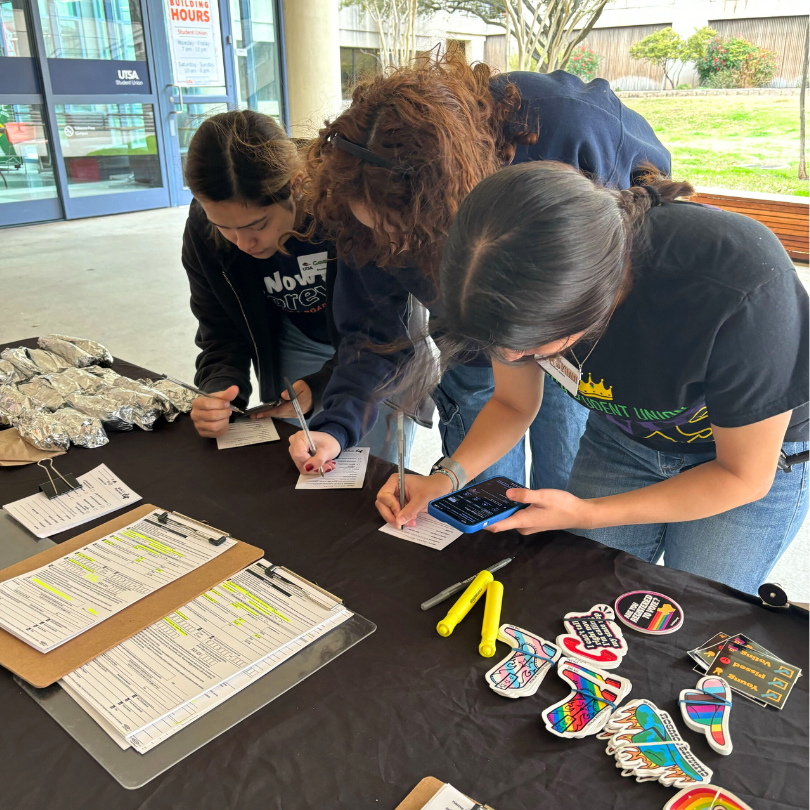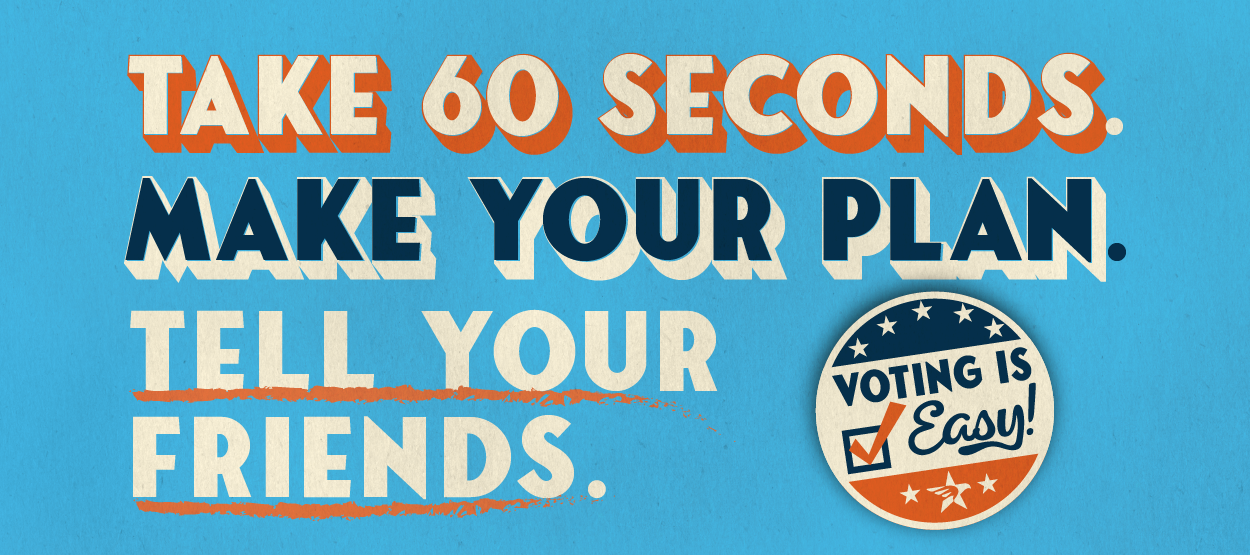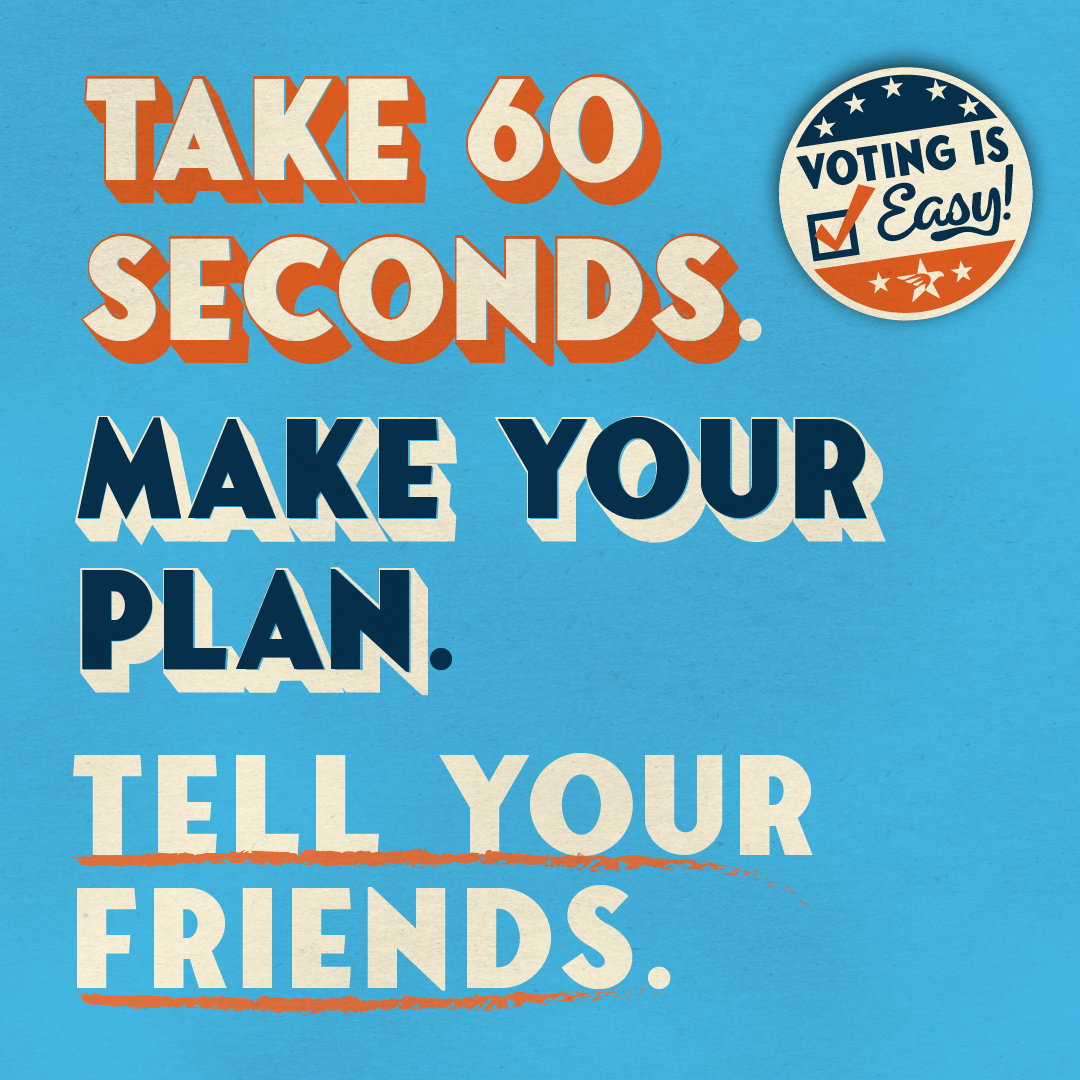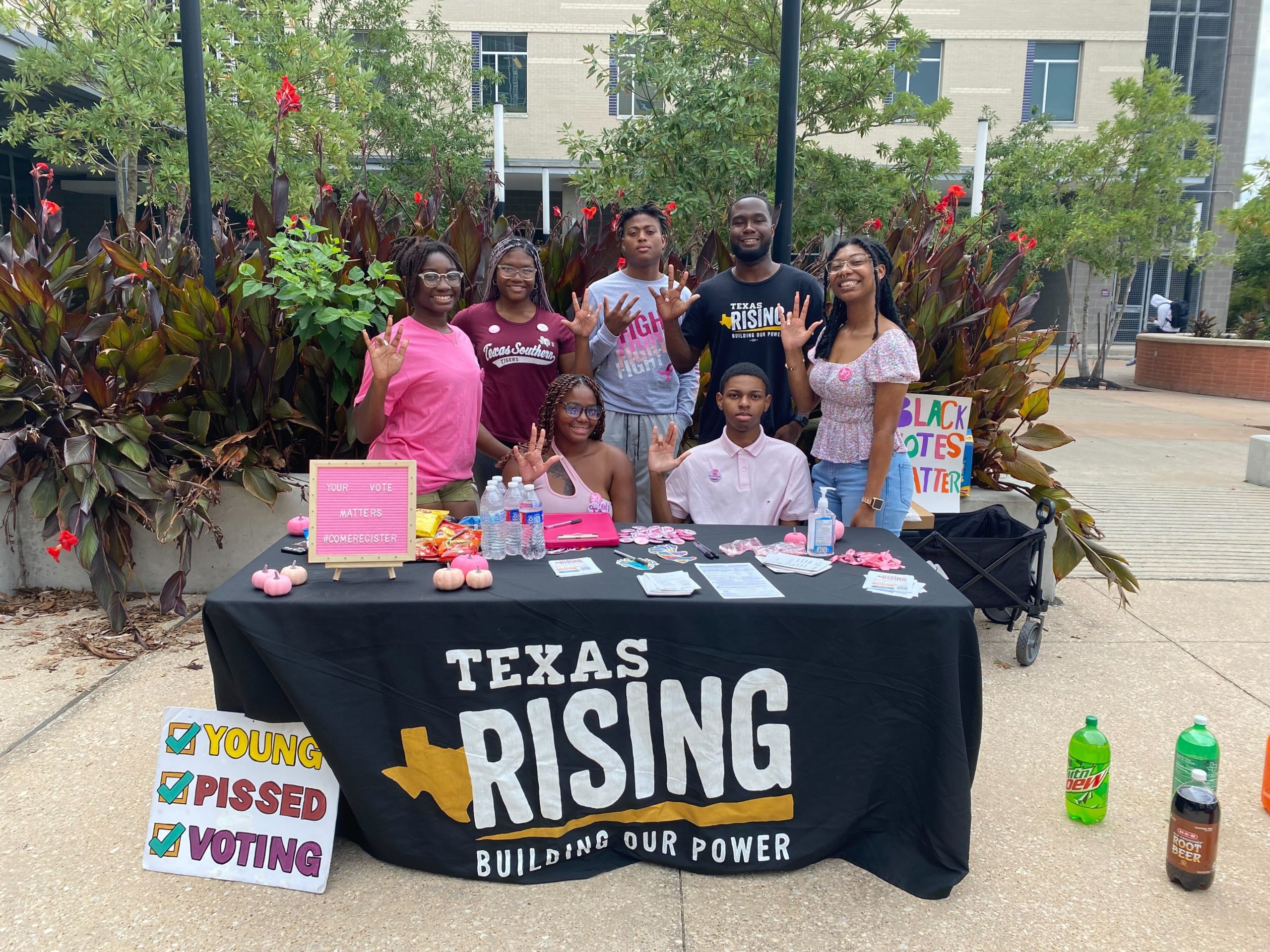Thousands of Texas voters are already making their plans to get to the ballot box for the March primaries.
When you take 60 seconds tops to start your plan, we’ll send a follow-up email with tools and resources to help you get your friends and family ready to vote, too.
Important Dates for the March Primary Election
Last Day to Register to Vote: Feb. 2
Last Day to Apply to Vote by Mail: Feb. 20
Early Voting: Feb. 17-27
Election Day: March 3
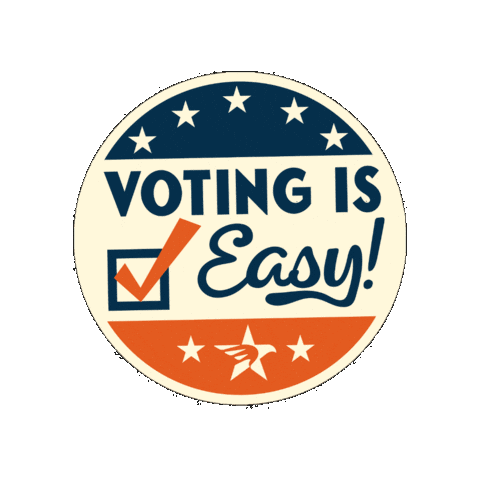
FAQs: How to Vote in Texas
You can confirm your registration status or get instructions to register on the Texas Secretary of State’s website. If you can’t find your registration, call your county voter registrar’s office to confirm your status.
Find your polling place using the “My Voter Portal” from the state of Texas.
On Election Day, if your county participates in the Countywide Polling Place Program (CWPP) – commonly referred to as ‘Vote Centers’ – you can vote at any location in your county of residence.
If your county does not participate in the CWPP, you can only vote at the voting precinct assigned to you. Find your polling place here.
You sure can! Submit VoteRiders’ ID help form for FREE support with everything from getting documents to prove your identity, to a free a ride to the DMV or Social Security office. VoteRiders will:
- Set up appointments and cover costs
- Request and pay for documents
- Figure out what documents you need to get your ID
- Make sure you are 100% ready to vote!
You can use one of the following 7 forms of photo identification (can be expired up to four years):
- Texas Driver License issued by DPS
- Texas Election Identification Certificate
- Texas personal identification card issued by DPS
- Texas license to carry a handgun issued by DPS
- United States military identification card containing the person’s photograph
- United States citizenship certificate containing the person’s photograph
- United States passport
Do you need help obtaining an ID? Submit VoteRiders’ ID help form for FREE support with everything from getting documents to prove your identity, to a free a ride to the DMV or Social Security office.
That’s okay. As long as your name matches, your ID will be accepted. Texas does not require the address to match.
You can still make address or name changes online until the voter registration deadline. After this deadline passes, you have to vote in the county where you are registered to vote. However, voting by mail might be an option for you. See the FAQ below on voting-by-mail eligibility and how to obtain a vote-by-mail application.
The voter registration applications and the vote-by-mail applications are completely different and separate forms. If you would like to vote by mail, you can check if you qualify and request a Vote By Mail Application. However, in order to vote by mail, you must be registered to vote. If you send a filled-out mail-in ballot, you cannot also try to vote in person.
You can vote by mail if:
- You will be outside of the county during Early Voting AND Election Day
- You are sick or have a disability (as defined in Texas Election Code 82.002(a))
- You are confined in jail without a felony conviction
- You are 65 or older on Election Day
- You are expected to give birth within three weeks before or after Election Day
If you are eligible, you can request an application to vote by mail here.
But keep this in mind: Applications to vote by mail must be in the hands of elections officials at least 11 days before the election. If you want to vote by mail, you must move quickly and submit your application as soon as possible.
Yes! The Voter ID card is not required if you have one of the following forms of photo identification (can be expired up to four years):
- Texas Driver License issued by DPS
- Texas Election Identification Certificate
- Texas personal identification card issued by DPS
- Texas license to carry a handgun issued by DPS
- United States military identification card containing the person’s photograph
- United States citizenship certificate containing the person’s photograph
- United States passport
For voters aged 18-69, ID must be current or have expired no more than 4 years before being presented for voter qualification at the polling place. If you are 70 years of age or older, you may use a form of acceptable photo identification that has expired if the identification is otherwise valid.
The state law passed by the 2021 Texas Legislature changed voting for Texans in the following ways:
- Mail-in-ballot voters must now provide ID on both the application and the return carrier envelope for their completed ballot.
- Election officials are no longer allowed to send vote-by-mail applications forms to voters who have not gone through the process of requesting one.
- Anyone who helps someone else in filling out a ballot at the polls – due to help needed because of language barriers, physical mobility, etc. – must now sign a form disclosing their relationship to the voter. The person assisting must also recite an oath stating that they did not pressure or coerce the voter into choosing them as their assistant.
- There is now a ban drive-through and 24-hour early voting. Both of those methods were used by elections administrators in 2020 to allow for safe voting access during the peak of the COVID-19 pandemic, helping more than 127,000 people exercise their right to vote safely.
Contact the Lawyers’ Committee for Civil Rights Under Law and Texas Civil Rights Project election protection hotline at (866) OUR-VOTE.
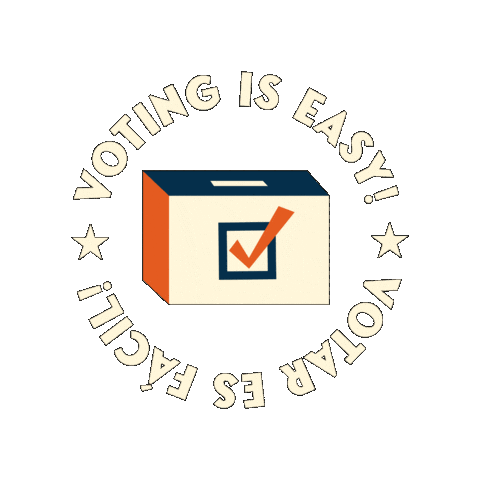
All About Elections in Texas
Learn all about the different types of state and local elections in Texas, what your elected officials do, and why it’s important to vote in every election.
Types of Elections
Primary elections decide which candidates will represent each of the major political parties in the general elections — Republicans run against Republicans, and Democrats run against Democrats. Voters may only participate in the primary election for one party, not both.
Voter turnout for primary elections in Texas is historically low, but we have the power to change that. By voting in the primary, you can ensure the candidates that best reflect your values are on the ballot in the general election.
A runoff election is what happens when no candidate gets at least 50% of the votes in an election. The top two candidates will proceed to a runoff election, where Texans will cast their ballot to decide who will represent them.
Runoff elections will look different depending on where you live, from the candidates on the ballot to the dates of voting.
Any voter registered in the candidates’ area of representation can participate. If you voted in the primaries for a particular party, you may only vote in the runoff election for that same party. If you didn’t vote in the Democratic or Republican primary, you may vote in the runoff election for either party.
A general election is where voters cast ballots to elect federal, state, and local officials.
Presidential elections are a type of general election that happens every four years (2016, 2020, 2024, etc.), when the U.S. President is up for election. More people tend to vote in presidential elections than in other types of elections.
Gubernatorial elections, also called midterm elections, are another type of general election, where the governor is the highest office up for election. They’re held every four years, between presidential elections (2014, 2018, 2022, etc.).
Special elections are held when there is a vacancy that needs to be filled before the next general election, whether it is because the incumbent resigns, dies, or is otherwise ineligible to continue to hold office.
Special elections can also take place when voters need to ratify or reject state constitutional amendments, or when the government needs voter approval to borrow money.
Elected Offices in Texas
Note: This is not an exhaustive list!
The Texas Legislature is the legislative branch of Texas government, composed of a 31-member Senate and a 150-member House of Representatives. The Legislature’s primary function is to create laws. It also approves the budget for the state government, and may establish government agencies, set their policies, and approve their budgets.
State senators serve 4-year terms and represent about 550,000 people each, and rtate representatives serve 2-year terms and represent about 113,000 people each.
The Texas State Board of Education (SBOE) is a board made up of 15 members elected from districts across the state of Texas. SBOE districts are enormous, and just one state board of education member has more constituents — about 1.6 million — than any other elected official in Texas.
Together, the members have several responsibilities, like overseeing the Texas Permanent School Fund and approving charter schools, but the SBOE’s most high-profile responsibility by far is deciding what is — and isn’t — taught in our public schools. They control everything that is learned by the 5.5 million-and-counting students in Texas public schools, on every subject.
Board members’ terms are staggered, meaning about half of them are on the ballot every two years.
The Texas Railroad Commission is a state agency that regulates the oil and gas industry, gas utilities, pipeline safety, safety in the liquefied petroleum gas industry, and surface coal and uranium mining. Despite its name, it does not regulate railroads.
The Railroad Commission is an extremely powerful agency, given Texas’ role in the oil and gas industry.
There are three Railroad Commissioners who are elected to six-year staggered terms with one commissioner up for election every two years.
Composed of the chief justice and eight justices, the Supreme Court of Texas is the highest court for civil matters in the state. They also oversee the State Bar of Texas, which licenses, regulates, and disciplines attorneys.
Texas Supreme Court justices are elected to staggered six-year terms in statewide elections.
The Texas Supreme Court and the Texas Court of Criminal Appeals are the two high courts in the Texas judicial system. This Texas court structure chart provides information on the state’s lower courts, including courts of appeals, district courts, county- and city-level courts, and more.
The Court of Criminal Appeals is Texas’ highest court for criminal cases. The Court consists of a presiding judge and eight Judges. The judges are elected statewide, and they hold their offices for terms of six years.
The Texas Supreme Court and the Texas Court of Criminal Appeals are the two high courts in the Texas judicial system. This Texas court structure chart provides information on the state’s lower courts, including courts of appeals, district courts, county- and city-level courts, and more.
A school board, sometimes called a board of trustees, is a governing body of 7 or 9 elected members that oversees an individual Texas Independent School District (ISD). They’re responsible for adopting the annual budget, setting a tax rate, appointing a superintendent, creating a vision for the district, creating policies that guide how the district operates, and much more.
The decisions local school boards make directly and profoundly affect the schools — and students — they’re elected to serve.
A city council is the legislative and governing body of a city, typically consisting of five or more elected members. In some cities, the mayor is a voting member of the council who serves as chair; in others, the mayor is an independent chief executive.
City councils have a host of responsibilities, including but not limited to: setting policy based on residents’ needs, approving the annual budget, determining the tax rate, appointing various members of city leadership, establishing city departments, determining city services, and more.
Term lengths vary depending on the city.
Election Protection Hotline
Have questions about voting? Call or text 866-OUR-VOTE (866-687-8683) to speak with a trained Election Protection volunteer.
This hotline provides voters with comprehensive information and assistance at all stages of voting — from registration, to absentee and early voting, to casting a vote at the polls, to overcoming obstacles to their participation.
Why You Should Vote
It’s important to be engaged, informed, and always vote — not just in presidential elections, but in your state and local elections, too! Local and state governments are responsible for everything from education and library services, to infrastructure and public transportation, to rent costs and affordable housing.
Local politics have the most direct effect on your daily life and your community, and your vote really does matter!
